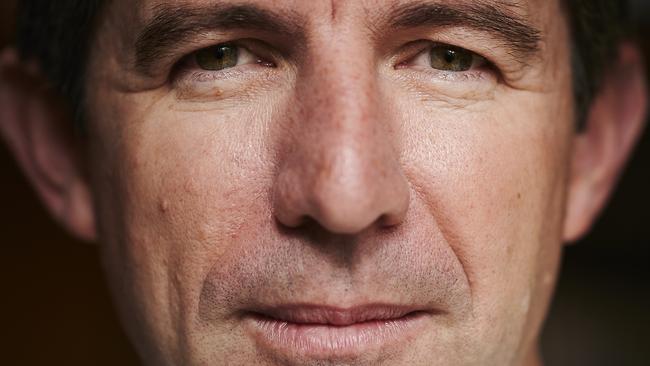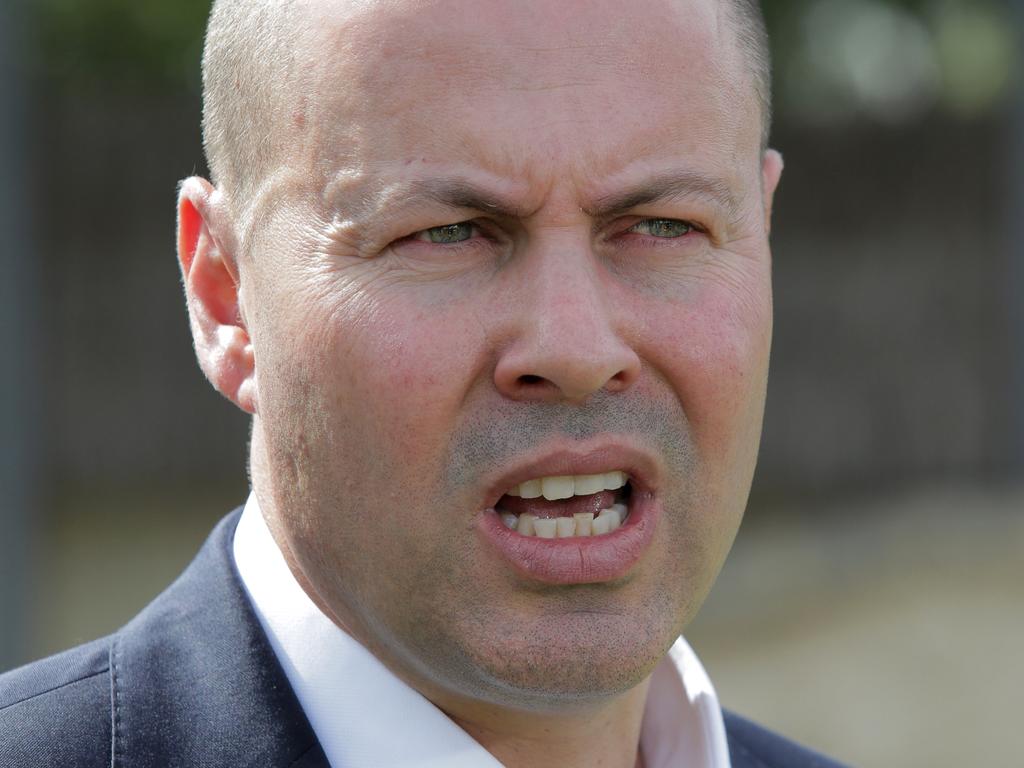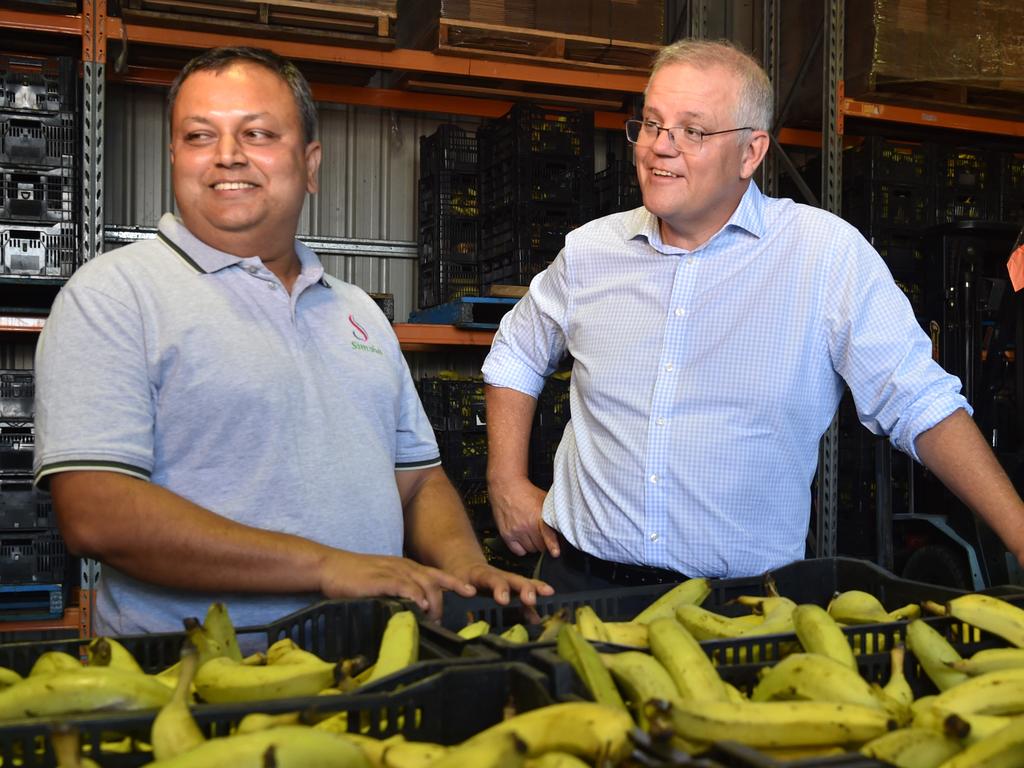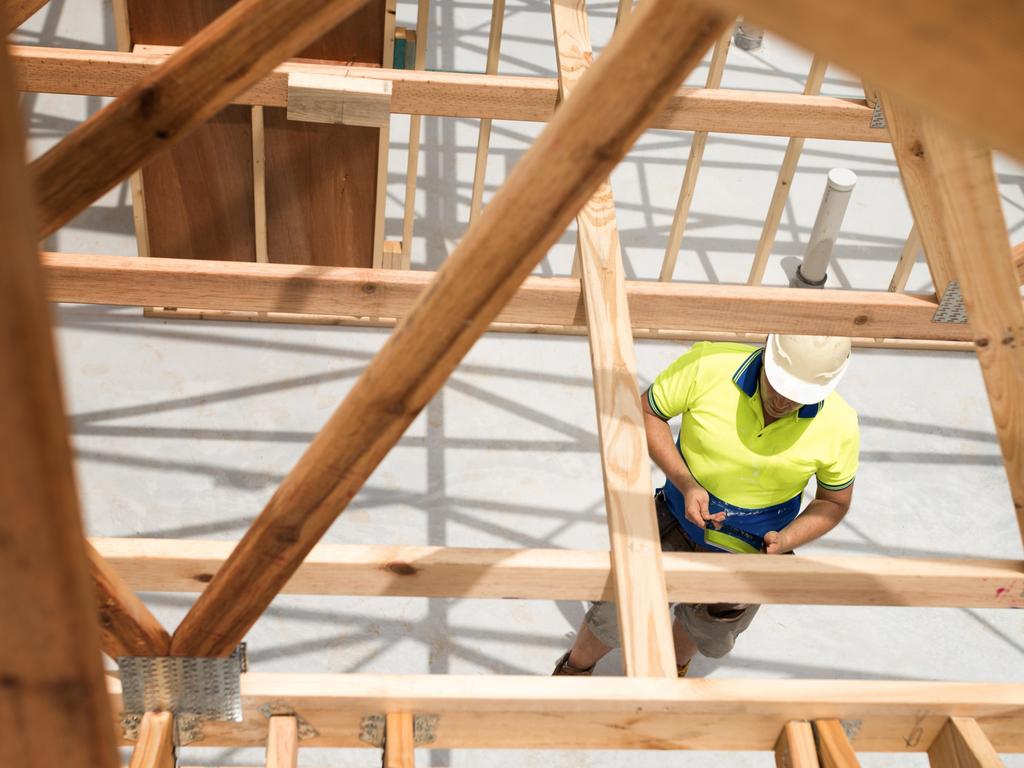Jobs surge to slash COVID-19 welfare bill
The $32bn COVID-19 welfare bill will be more than halved over four years as JobSeeker recipients return to pre-pandemic levels.

The nation’s $32bn COVID-19 welfare bill will be more than halved over the next four years and JobSeeker recipient numbers returned to pre-pandemic levels, with a rapid rebound in the jobs market to be revealed in next week’s federal budget.
But the Morrison government has warned it will not jeopardise the economic recovery with a rush to re-open international borders amid global outbreaks and uncertainty about the speed of the vaccine rollout and its effectiveness.
In an interview ahead of his first budget since he replaced Mathias Cormann, the nation’s longest-serving finance minister, Simon Birmingham said the pace of economic recovery would slash the forecast welfare bill triggered by last year’s COVID-19 shutdown.
“In 2020-21 we would expect JobSeeker payments to finish around $4.5bn lower than had been forecast in MYEFO,” Senator Birmingham said.
Given the rate of jobs growth and the Reserve Bank’s optimistic forecast for employment, he said JobSeeker payments were expected to fall to $14.7bn by 2024-25, down from $32bn in MYEFO.
“That trending downwards in total payment numbers needs to be remembered against the fact that we’ve increased the base rate at the same time,” he said.
“It’s a demonstration that the projected strength in the economy, that internationally the IMF and OECD have identified, domestically the Reserve Bank and other economic commentators have called out, is something that should give Australians cause for optimism and it’s why we want to hand down a budget that does everything to reinforce that optimism.”
Senator Birmingham said that, while the budget would show a quicker than expected recovery, the government would still take a cautious approach to the reopening of Australia as COVID-19 outbreaks in India and Papua New Guinea forced a reshaping of the country’s outlook.
He flagged that any significant international business and leisure travel might not resume until well into 2022, warning that borders would not “be flung open with ease” at the start of next year.
This message will be re-enforced by Scott Morrison in a speech to the Australia-Israel Chamber of Commerce on Thursday in which he warns he will not put the economic recovery and the health of Australians at risk.
“We must stick with this plan … it will be a budget that continues to be framed by the brutal reality of the global pandemic,” the Prime Minister will say.
“We cannot put it at risk, or go with those who would take us in a different direction.
“The virus is still raging around the world. Almost 800,000 new infections are being reported every day. As long as the virus is a threat to people, it remains a threat to the world economy, and our economy.”
Senator Birmingham said the budget was based on more conservative assumptions about when and how Australia would reopen to the rest of the world in light of events of the past three months.
“We recognise that if Australians want to be kept safe and secure … and given uncertainties that exist not just in the speed of the vaccine rollout but also the extent of its effectiveness to different variants of COVID, the duration of its longevity and effectiveness, these are all consideration that mean we won’t be seeing borders flung open at the start of next year with great ease,” he said.
“I think people appreciate, as we come to the point of delivering this year’s budget, it’s delivered against a global landscape of even greater uncertainty than existed a few months ago when we commenced the framing of it.
“The ferocity of recent COVID outbreaks, the uncertainty in many countries around vaccine rollouts all create an environment in which, although Australia’s enjoying very high levels of business and consumer confidence, there’s a fragility that underpins all of that.”
That necessitated “a very strong focus on how we keep the recovery going strongly”, he added.
Senator Birmingham said the government must maintain confidence across businesses and consumers so as not to “jeopardise the huge gains the country has made in the last 12 months.
“Having tight border controls has not only saved Australian lives it’s also saved Australian jobs,” he said. “And whilst we want to reopen when we can have confidence that it will be safe and successful to do so, we’re not about to rush that in a way that jeopardises the health or economic safety of Australians.”
Senator Birmingham said that while the budget deficit this year would be significantly lower than the $197.7bn forecast just six months ago, it would remain a significant challenge.
“I think Australians understand that because it’s come about as a result of the first global pandemic in 100 years and they recognise the measures that we’ve put in place didn’t just save people’s short-term jobs and incomes, they have helped to save the country’s productivity capability by preventing massive levels of business failures that would’ve made recovery so much harder,” he said.
Senator Birmingham said the pre-pandemic budget rule of a tax-to-GDP cap of 23.9 per cent would be returned over the medium term.
“The taxation cap drives your behaviour to try to bring spending towards that cap,” the Finance Minister said.
“We’ll continue to be operating clearly below the taxation cap. And obviously over the medium-term, the growth equation seeks to achieve a convergence in those two lines.”
Senator Birmingham said that while trade with China remained strong there would be ongoing issues for some sectors.
With China’s appetite for iron ore at record levels, the former trade minister said the government would continue to adopt a “conservative approach” in relation to iron ore and other commodity forecasts.







To join the conversation, please log in. Don't have an account? Register
Join the conversation, you are commenting as Logout